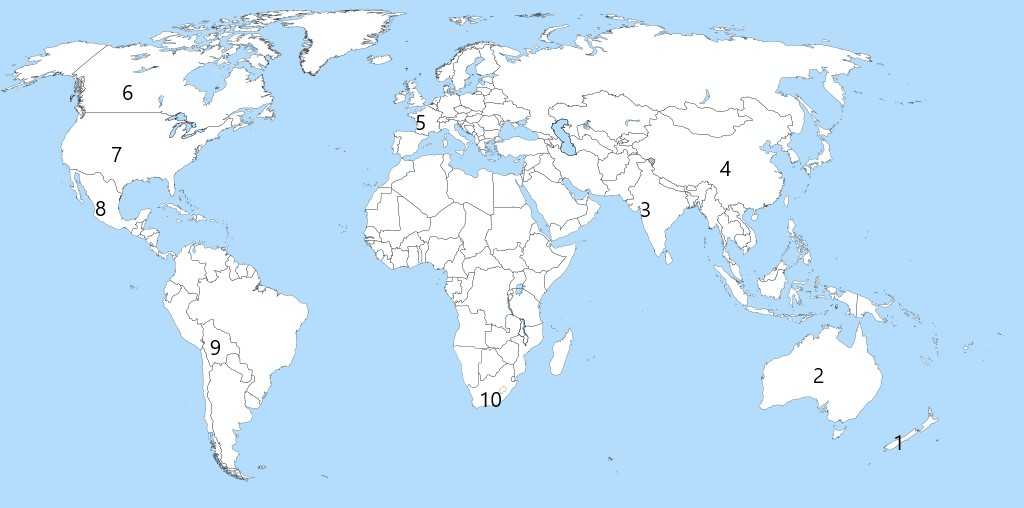
Ten Days to Celebrate! Trivia Quiz
Travel the world one holiday at a time! Match these holidays to the countries where they are celebrated. Some holidays may seem to fit for more than one country but there is only one complete solution.
A label quiz
by zorba_scank.
Estimated time: 3 mins.
